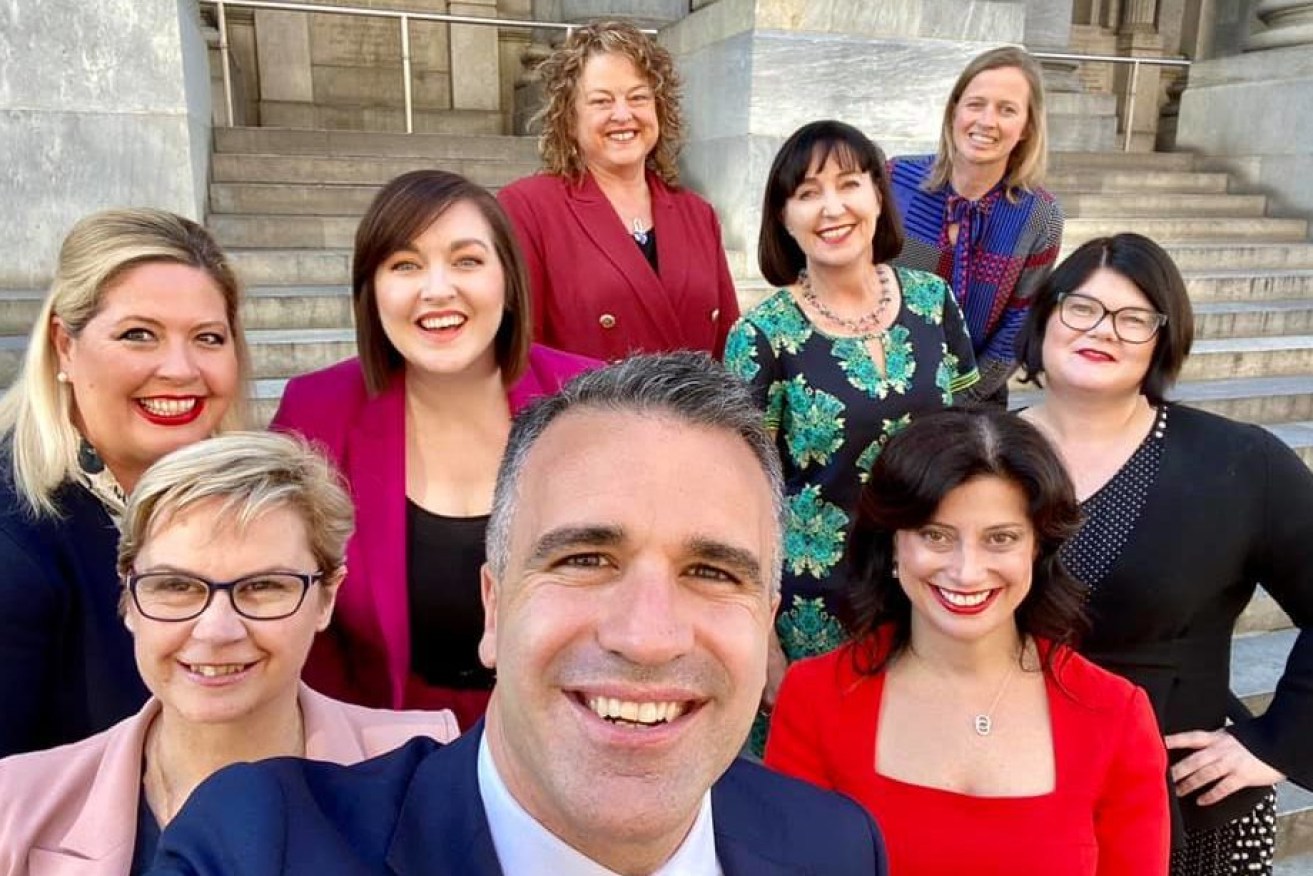Labor’s democratic experiment blows up
The state ALP’s new rank and file preselection ballot process has exploded in controversy, with the process under a legal cloud after party officials determined to downplay the influence of ordinary party members – and leader Peter Malinauskas conceding he is powerless to intervene.

Peter Malinauskas taking a selfie with some of his frontbenchers after this year's shadow cabinet reshuffle. Photo: Facebook
InDaily reported last week that Labor was undergoing the first internal party ballot under new rules that came into play from 2018, intended to diminish the hegemony of the unions and sub-branch delegates in picking candidates.
Under rule changes driven by Malinauskas when he was party president and state secretary of the powerful shopworkers’ union, contested upper house and Senate ballots for SA Labor will be determined by a vote giving equal weight to the union blocs, sub-branch delegates and ordinary rank and file party members.
The same rule also now applies to contested lower house preselections, where ordinary sub-branch members previously accounted for 25 per cent of the total count.
The rule change was likely to give some hope to candidates Ben Browne, a regional councillor standing for the Legislative Council ticket against four factionally-backed candidates, and Brett Rankine, contesting the northern suburbs seat of King against the endorsed Left candidate Rhiannon Pearce.
However, InDaily understands party returning officer Jennifer Allison informed candidates’ scrutineers last night that while the union and sub-branch delegate votes would each account for one-third of the total, the rank and file component would be weighted as a proportion of the total number eligible to vote.
InDaily has been told it’s likely the ruling will be challenged, with one source saying their camp was “seeking some more clarification before the ballot’s counted” from tomorrow.
Adding to the confusion, Malinauskas told InDaily the interpretation was at odds with his intention when introducing the rule change.
“I can see what the PRO’s done, but it’s certainly not what the intent was,” he said.
“If the rules need to be amended so as to achieve the intended outcome, that’s something I’d support in the future.”
However, he said he could not intervene in the current process because party rules were subject to a majority vote at the state convention.
“If it’s been interpreted that way, then the rule needs to be re-written so as to be clear on how it should be applied – consistent with what most people in the party would understand the intent to be,” he said.
He denied the debacle was an embarrassment for the party after its much-lauded foray into a genuinely democratic ballot process, saying: “This is the first time individual branch members of the party have been able to vote for upper house candidates, and that’s something I’m proud to have led.”
InDaily has been told most of the eligible rank-and-file members in King cast their vote, which would limit the degree to which the PRO’s interpretation impacts the result – but it’s likely to see the outcome in both elections sent for a review.
Browne backer Ralph Clarke said there was “ambiguity in the rule as it’s written”.
“It was either badly drafted or drafted to achieve an objective,” he said.
“I know there’s strongly contested views as to the actual legality of it.”
He noted the new interpretation could actually see the rank and file component go backwards for lower house ballots – given fewer than the previous 25 per cent could end up being counted if enough members failed to vote.
“It’s pretty against the spirit and the intent of what Peter put forward at the state convention,” he said.
“Whether it was just dumb drafting or someone’s a bit too cheeky by half, only time will tell.”
Queries to Labor’s head office were ignored, with state secretary Reggie Martin unable to comment as he is one of the five candidates vying for four places on the Upper House ticket. The others are incumbents Kyam Maher, Ian Hunter and Tung Ngo.




